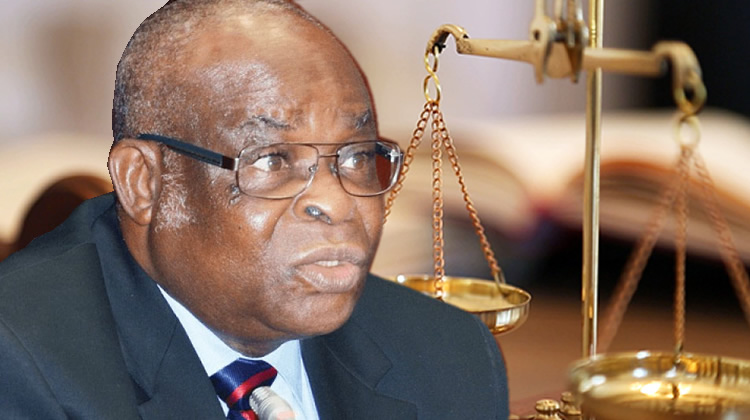The Supreme Court Thursday fixed May 17 to deliver judgment in a suit the Cross River State government filed to challenge the suspension of the Chief Justice of Nigeria, CJN, Justice Walter Onnoghen, by President Muhammadu Buhari.
A seven-man panel of Justices of the apex court, led by Justice Olabode Rhodes-Vivour, adjourned to determine the legal propriety of the action President Buhari took against Onnoghen on January 25.
President Buhari had on the basis of an ex-parte order issued by the Code of Conduct Tribunal, CCT, in Abuja, ordered Onnoghen who is facing corruption charge, to step aside, even as he swore in the next most senior jurist on the Supreme Court bench, Justice Tanko Muhammad, to take over as the Acting CJN.
However, dissatisfied with the action, Cross River State invoked section 22 of the Supreme Court Act, which conferred the apex court with original jurisdiction to sit as a court of first instance on disputes between any state of the federation and the Federal Government.
Specifically, Cross River State, through the office of the Attorney General, is praying the apex court to determine whether the suspension or removal of Onnoghen from office by President Buhari, based on an ex-parte order by a lay magistrate (the Chairman of the CCT), was not in gross violation of section 292(1) of the 1999 Constitution as amended.
Cited as defendants in the suit were the Federal Republic of Nigeria and the Attorney General of the Federation.
While adopting his brief of argument yesterday, counsel to the Plaintiff, Lucius Nwosu, SAN, urged the apex court panel to hold that Onnoghen’s suspension was illegal, unconstitutional and deserved to be set aside.
He urged the court to allow the suit, void the suspension and restore Onnoghen as the substantive CJN and chairman of the National Judicial Council, NJC.
However, the federal government, which was represented by the Solicitor General of the Federation, Mr. Dayo Apata, asked the Supreme Court to dismiss the suit for want of merit.
The Defendants equally challenged the locus standi of Cross River State to approach the Supreme Court on the issue.
They contended that Onnoghen’s suspension was personal to him and, therefore, could not be interpreted to amount to a dispute between the federal and state government that would require the invocation of section 22 of the Supreme Court Act.
Consequently, the Defendants urged the Supreme Court to decline jurisdiction to grant any of the reliefs sought by the Plaintiff.
After it had listened to both sides, the Justice Bode-Vivour-led panel, which was constituted by the Acting CJN, Justice Muhammad, adjourned the matter for judgment.
The suspended CJN, who hails from Cross River State, is facing trial over alleged failure to declare his assets as prescribed by law.
In a six-count charge pending against him before the CCT, the federal government equally alleged that Onnoghen operated foreign bank accounts, contrary to the code of conduct for public officers.
Onnoghen had since pleaded not guilty to the allegations, even as he was released on bail on self- recognition.
His trial is expected to resume before the CCT on March 11.

